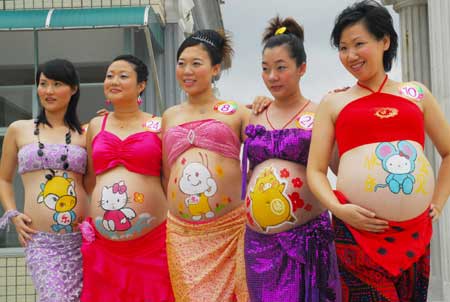| Home > Living in China > Traditional Chinese Medicine |
Students from Uconn of U.S. travel to China to learn about TCM
What's the meaning of the word "TCM"? It is a shortened form of traiditional Chinese medicine. Today, TCM is also learned and researched by people in the west while Chinese culture's worldwide spreading.
A group of UConn students traveled across the globe this summer to learn about medical practices that have existed for thousands of years.
Seven students from the School of Pharmacy and six from other academic disciplines spent five weeks in Beijing, China studying traditional Chinese medicine.
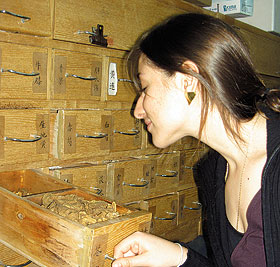 |
|
UConn student Ana Charalambides looks at herbs in the traditional Chinese medicine pharmacy in Peking University Third Hospital. |
They took field trips to herb farms and pharmaceutical groups, watched acupuncture performed on patients, and studied Mandarin. They also visited hospitals that prescribe herbal medicine and the factories that produce it.
“It was an amazing experience,?says Grzegorz Rdzak, who is in UConn’s Pharm.D. program. “I never would have done something like this on my own. I learned a lot about the culture and many aspects of herbal medicine.?/FONT>
UConn Study Abroad and the School of Pharmacy sponsored the program. Courses were conducted at the Peking University School of Pharmaceutical Sciences, which has had a “sister?relationship with UConn’s School of Pharmacy since 2007. The students lived at the university’s health sciences campus in the center of Beijing.
Although Western medicine is practiced in China, most citizens rely heavily on traditional Chinese medicine, says the program’s director, Diane Burgess, a professor of pharmaceutical sciences.
“Traditional Chinese medicine covers a range of medicinal practices that developed over thousands of years, including herbal medicine, massage therapy, and acupuncture,?she says.
“Our program focused on herbal medicine, which is becoming a popular method of treatment in the West. We wanted our students to see how this other type of medicine is such an accepted part of the Chinese culture, to learn more about it and how well it works.?/FONT>
Students earned six credits for the program, which included seminars that covered the history and the basic theories of traditional Chinese medicine.
They also studied the morphology and chemistry of Chinese herbs and minerals, quality control, and the clinical use of the medicines. Faculty at Peking University presented the lectures. The students were also required to take 28 hours of instruction in Mandarin.
Students visited pharmaceutical groups and observed the preparation of Chinese herbs. They were shown ancient and modern processing methods, and learned how the major dosage forms are manufactured, including pills, powders, tablets, and capsules. At herb farms, students learned how to identify plants and prepare sample specimens.
Visits to hospitals and other community medical facilities gave students exposure to physicians prescribing and dispensing herbal medicines.
Rdzak was impressed by the quality control in the production of herbal medicines.
“The quality control was far more than I expected, and I really appreciated that,?says Rdzak, who studied analytical chemistry as an undergraduate before going into pharmacy.
“The Chinese know absolutely every single piece of each extract,?he says.
“They have a standardized list of what to follow from the very beginning, with checkpoints along the way.
Everything was done perfectly. They wanted to show us that they really care about analytical chemistry and quality control of their herbal products.?
Alexandra Mooney, who is also in the Pharm.D. program, says the experience offered an opportunity to "see what health care is like in another country. The Chinese have been using herbal medicine for thousands of years, and health care in the West is changing and incorporating some of that.?
Mooney says the program was more than just learning about traditional Chinese medicine: “It was a wonderful cultural experience as well.?
Ross Lewin, director of the Study Abroad Program, says the program in China is “a huge step forward in international education at UConn. It is not only our first pharmacy program, but one of the first in the United States. It also marks the beginning of UConn’s relationship with one of the top universities in China ?Peking University ?and exemplifies the way in which Study Abroad can provide a curriculum and a pedagogy that cannot be carried out on our own campus.?/FONT>
Adds Burgess, “You couldn’t offer anything like this in this country. It would have to be in China.?/FONT>
Art
 more
moreClassic Chinese Handicraft:
Porcelain pillows, as classic Chinese handicraft,
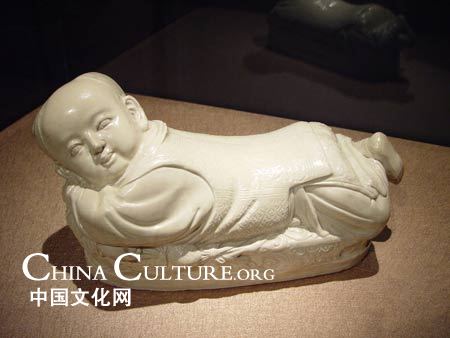
Chinese Treasures Returned from
As witness of Chinese culture and custom, countless treasures
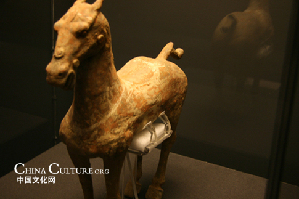
The lost legacy: classical music
Accompany by the long history of China, Chinese classical music
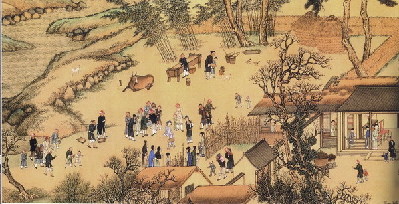
Customs
 more
moreChinese Kungfu
Kungfu Taste: Learn Martial Art in Shaolin Temple
The mention of Shaolin Temple conjures up images of a quiet and
Keet Kune Do will reappears on screen: BRUCE Lee and
The Legend of Bruce Lee is shot by China Central Television
The Road to the Olympic Games for Wushu
Wushu, also called kungfu, martial arts, is attracting more and more




 print
print  email
email  Favorite
Favorite  Transtlate
Transtlate 